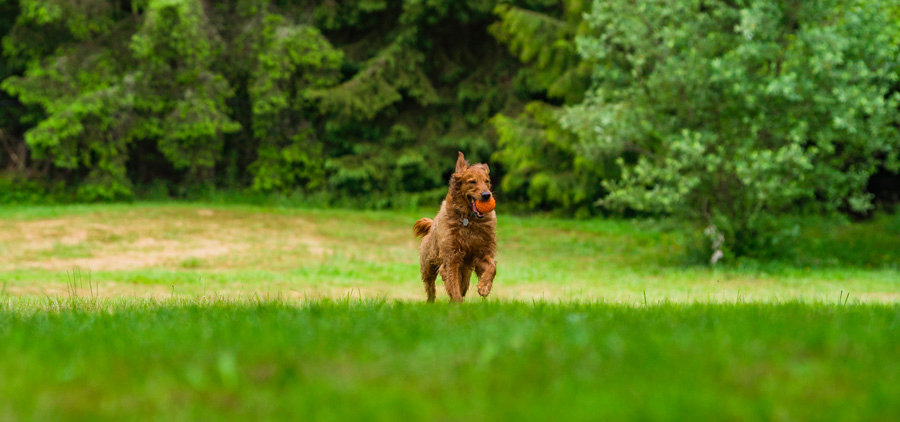Are Border Collies Good First-Time Owners? An Honest Look

Discover the Border Collie, a breed celebrated for its trainable, alert, and playful nature. Considered a medium-sized dog, Border Collies were originally bred in the United Kingdom for herding and working livestock beginning in the 19th century.
In this post, we share insights from almost 10,000 Sniffspot users, offering practical advice for new and prospective Border Collie owners. Whether you’re considering owning or rescuing a Border Collie yourself or already have one, you’ll find valuable tips on how to care for and enjoy life with a trainable Border Collie.
Border Collies: brilliant, athletic, and intensely loyal. They're the canine equivalent of a four-legged Einstein, but are Border Collies good for first-time owners? As Sniffspot user Courtney shares, "My Border Collie is such a goofball, but so eager to please and learn." That eagerness comes with a need for a "job," plenty of exercise, and a dedicated owner. This isn't just a dog; it's a furry, energetic partner. So, let's explore what it really takes to be a Border Collie owner, drawing on insights from nearly 10,000 Sniffspot users.

Source: Sniffspot Community Breed Survey 2024
Border Collie Essentials: A Quick Overview
- Breed Type: Herding
- Size: Medium
- Life Expectancy: 12 – 15 years
- Healthy Weight Range: 30 – 45 lbs
- Adult Height Range: 18 – 22 in
- Temperament: Trainable, Alert, Playful
- Coat Type: Double, Smooth coats
- Color: Black and white, merle (blue or red), tri-color, and various other combinations
Getting to Know the Border Collie
According to almost 10,000 Sniffspot community users who shared real-world data about their Border Collie, we learned these dogs are trainable and alert. The Border Collie is very friendly and social with children and very friendly with other pets, especially compared to larger breeds.
When living with a Border Collie, 78% of our owners said a large house with a fenced yard is necessary to keep this pet happy. Additionally, 56% of owners said a rural or suburban area with open spaces is also acceptable. This dog is highly trainable by all types of dog owners and owners say the Border Collie learns best with positive reinforcement, consistent routines, enrichment activities, and socialization.
When it comes to exercise, 46% of Sniffspot owners say their Border Collie benefits from high exercise every day, including over 2+ hours of activity a day, including walks, runs, and play sessions. The Sniffspot Border Collie community would not recommend this dog for first-time owners.
Key Takeaways
- Border Collies thrive on activity: These intelligent dogs need a significant amount of exercise (2+ hours daily) and mental stimulation. Ensure you can meet these needs before bringing one home.
- Training is key for a happy Collie: Positive reinforcement, consistent routines, and a "job" will help your Border Collie channel their intelligence and energy positively.
- Experienced owners are often best: Border Collies aren't always ideal for first-time dog owners due to their demanding nature. Research, fostering, and connecting with experienced owners can help you decide if a Border Collie is right for you.
The Border Collie Story: Origins and History
The Border Collie, a highly skilled herding dog, originated from the border region between Scotland and England. Known as “collie” in old Gaelic, these dogs were essential for managing livestock and adapted to the demanding rural environment. Their excellence in herding was first formally recognized through sheepdog trials starting in the late 19th century.
One of the most famous lovers of Collies was Queen Victoria herself. When Queen Victoria spotted this active breed in the latter half of the 19th century, she became an active enthusiast. Aside from Queen Victoria, other notable Collie pet parents are James Dean, Ethan Hawke, and Bon Jovie just to name a few.
Border Collies gained international fame for their intelligence and agility, thriving in competitive trials and obedience sports. They were officially recognized by the American Kennel Club in 1995, and Collie Breed clubs are dedicated to preserving their herding instincts and promoting their capabilities. One of the most intelligent breeds, let’s dive deeper into what makes these pups special.
Key Border Collie Traits and Characteristics
- Temperament: Trainable, Alert, Playful
- Energy Level: High
- Trainability: Highly trainable – Learns commands quickly and responds well to training.
- Grooming needs: Moderate maintenance – Needs regular brushing and periodic baths.
- Good with Kids: Very friendly and social with children
- Good with Other Pets: Very friendly with other pets
Temperament and Personality
Border Collies are known for their intelligence, trainability, and playful nature. They are eager to please and thrive on having a "job" to do, which makes them excellent companions for active individuals or families who can provide plenty of mental and physical stimulation. However, this also means they aren't always the easiest breed for first-time owners. As one Reddit user aptly points out, "Border Collies are incredibly active and require a significant amount of daily exercise (much more than a simple daily walk)." This high energy level can be a significant hurdle for first-time owners with busy schedules. If you're considering a Border Collie, be prepared for a dog that needs a lot of attention and engagement.
Energy Levels and Exercise Needs
These dogs have remarkable energy levels. Experts emphasize that Border Collies "need a LOT of daily exercise—much more than most breeds." This could involve multiple short walks, a long run, vigorous playtime, or ideally, a combination of all three. Think beyond just physical exercise, though. Border Collies also need mental stimulation to stay happy and avoid boredom-related behaviors. Puzzle toys, training sessions, and even learning new tricks can help channel their mental energy. Access to safe, enriching spaces for off-leash play and exploration can also be incredibly beneficial for this active breed.
Intensity of Exercise
Don't underestimate the commitment involved in meeting a Border Collie's exercise needs. Owning a Border Collie is a lifestyle choice. It requires setting aside time each day for walks, runs, playtime, and training. If your days are already packed with work and other commitments, providing the consistent, high-intensity exercise a Border Collie requires can be challenging. Consider your daily routine and available free time realistically before bringing a Border Collie into your life.
Addressing the Need for "Jobs"
Border Collies were bred to work, and that instinct is still strong. They thrive on having tasks and responsibilities. As highlighted in a Reddit discussion, "They need 'jobs' to do; otherwise, they'll create their own (often leading to unwanted behaviors)." This could manifest as excessive barking, digging, chewing, or even trying to herd family members. Providing your Border Collie with structured activities, like agility training, herding trials (if you have access to livestock), or even advanced obedience training, can fulfill this need and keep them mentally stimulated. Finding the right name that reflects their energetic and intelligent nature can also be a fun part of the "job" of being a Border Collie owner.
Intelligence and Trainability
Border Collies are exceptionally intelligent and eager to learn. They pick up new commands quickly and excel in various dog sports. Experienced owners note that Border Collies are "highly intelligent and eager to please," making them highly trainable. However, their intelligence also means they need consistent and engaging training to prevent boredom and maintain focus. Connecting with a qualified dog trainer can be invaluable in understanding how to best approach training for this intelligent breed.
Potential for Stubbornness
While their intelligence is a huge plus, it can also present challenges. A Mumsnet discussion points out that "While intelligent, Border Collies aren't necessarily 'easy' to train. Their intelligence can make them stubborn." This means they may sometimes test boundaries or try to outsmart their owners. Consistent, firm, and positive reinforcement training is essential to establish clear expectations and prevent unwanted behaviors. Finding secure spaces for them to practice training commands without distractions can also be helpful.
Nipping and Herding Instincts
Border Collies have strong herding instincts, which can sometimes manifest as nipping at heels or trying to "herd" children or other pets. This isn't necessarily aggression but a deeply ingrained behavior. As noted on Mumsnet, without proper training and exercise, Border Collies "can develop undesirable behaviors like nipping, herding (children), anxiety, reactivity towards other dogs, and general stroppiness." Early socialization and consistent training can help manage these instincts and ensure your Border Collie interacts appropriately with people and other animals. Providing outlets for their herding instincts, such as herding balls or agility courses, can also be beneficial. Having access to private dog parks can provide a safe and controlled environment for them to practice these behaviors without the risk of bothering other dogs or people.
Are Border Collies Friendly?
Another important thing to consider when adopting a Border Collie is whether or not they fit with your current family. How friendly are Border Collies compared to other medium-sized breeds?

Source: Sniffspot Community Breed Survey 2024
With consistent training, you can hone your Border Collie’s working instinct into a loyal and friendly family dog.
Introducing your pet to positive reinforcement (treats, praise, rewards) and consistent daily training routines early helps them avoid undesirable behaviors like developing anxiety or sensitivities. Our community Border Collie owners comment on their pet’s friendliness:
- Extremely friendly and affectionate, a high drive, and always wants to be around people (JS)
- They’re incredibly sensitive and sweet dogs once they come to trust you. Their intelligence allows for all kinds of fun games and play, and can create a very deep bond through training. (AN)
- Reactivity. Take a border collie and put it in an urban environment and you’ll see reactivity towards any movement (cars, bikes, kids). (Heather)
Training Your Border Collie: Tips and Techniques
Whether you’re adopting a Border Collie puppy or a grown Border Collie adult, training classes and training sessions are a large part of owning a medium breed. When you fail to train your Border Collie properly, they’re more likely to display undesirable behaviors like developing anxiety or sensitivities, and so on. Providing stimulating activities is a great first step, but this needs to be paired with the right training for your Border Collie.
As a herding breed, Border Collies benefit from praise and positive reinforcement. They also are more likely to be on their best behavior with consistent physical exercise. Here’s what our Border Collie community recommended based on their experience with their own dog:
- Positive Reinforcement (93%): This includes treats, praise, rewards, and so on for positive behavior.
- Consistent Routines (57%): A consistent training routine allows your pet to get comfortable with expectations.
- Socialization (34%): Socializing your dog with other pets, dogs, and people prepares them to interact with the world.
As dogs bred for herding and working livestock, Border Collies are considered highly trainable by all types of dog owners. However, you can’t skip on enrichment activities.
Recall Training Importance
Teaching your Border Collie a reliable recall is essential. A solid recall—teaching your dog to come when called—can prevent them from darting into dangerous situations, especially given their natural instinct to chase. This is particularly important for intelligent, high-energy breeds like the Border Collie. Starting recall training early, when your Border Collie is still a puppy, increases your chances of success (source). This foundation will make outings to dog parks and other open spaces much more enjoyable.
The “come” command is one of the most important commands you can teach (source). Focus on positive reinforcement, using treats, praise, and rewards. Border Collies thrive on having a "job," and recall training can be a fun, engaging activity. It also satisfies their need for mental stimulation. Avoid calling your dog when they're unlikely to come, except in emergencies. This can undermine your training (source). A reliable recall gives your Border Collie more freedom and strengthens your bond.
Life With a Border Collie: What to Expect
As a Border Collie owner, it’s important to know the best dog breed tips as well as expectations from current Border Collie owners. Remember, these pups were bred for herding livestock. They require active owners who understand their physical exercise, grooming, and training needs.

Source: Sniffspot Community Breed Research 2024
Grooming Your Border Collie
Border Collie dogs require moderate maintenance grooming. This means Border Collie owners should expect regular brushing and periodic baths. Border Collie dogs have a double coat, ideal for insulation when working outdoors. Their double coat is considered high shed.
To keep your Border Collie’s coat healthy and up to breed standards, brush them several times a week to manage shedding and prevent mats. Of the coat types for common breeds in the herding group, the coat grooming needs for Border Collies are considered moderate maintenance.
Border Collie Exercise Needs
Border Collies require high activity each day. Though one of the most popular active breeds, Border Collies are considered a very athletic, high-energy breed. Border Collies make great pets, and they thrive with over 2+ hours of activity a day, including walks, runs, and play sessions. Owners of Border Collies report their dogs especially love chasing/playing with a ball or frisbee, tug-of-war, and playing with squeaky toys.
When medium breeds like Border Collies don’t get sufficient exercise, they’re more likely to act out on undesirable behaviors like developing anxiety or sensitivities. They need consistent training, mental activity, and regular exercise to avoid excess energy.
Meeting the 2+ Hour Exercise Requirement
Border Collies need a lot of activity—think two-plus hours each day. This includes walks, runs, and good, solid play sessions. They’re energetic and athletic dogs bred to work, so they thrive on having a "job" to do, even if it's just a vigorous game of fetch. Our Sniffspot community research shows that when Border Collies don’t get enough exercise, they're more prone to anxiety and other behavioral issues. Consistent training and mental stimulation are key, but physical exercise is the foundation for a happy and well-adjusted Border Collie.
Think about what your Border Collie enjoys. Many love chasing balls or frisbees, playing tug-of-war, or even just romping around with squeaky toys. Variety is important, so mix up their activities to keep them engaged and stimulated. If you’re looking for inspiration, check out our articles on dog enrichment and top dog trainers for ideas on how to keep your Border Collie entertained and challenged.
Finding Dog-Friendly Spaces with Sniffspot
Given their high energy levels, having the right space for your Border Collie is essential. Our research found that 78% of Border Collie owners consider a large house with a fenced yard a necessity. A rural or suburban environment with open spaces is also ideal for these active dogs. If you don't have a large yard, don't worry! There are still plenty of ways to ensure your Border Collie gets the exercise they need.
Sniffspot can help you find the perfect dog-friendly spaces near you. Whether you're looking for dog parks, dog water parks, or even private trails for hiking, Sniffspot connects you with safe and enriching environments where your Border Collie can run, play, and socialize. It's a great way to supplement your dog's daily exercise routine and provide them with the space they need to thrive. Check out our listings and discover the perfect spot for your Border Collie's next adventure.
Feeding Your Border Collie: Diet and Nutrition
What should you feed your Border Collie to keep him healthy? As a high-energy breed, what you feed them is important. A reported 64% of our community feeds their Border Collie commercial dry kibble.
With high exercise, Border Collies should eat 2 to 3 cups of vet-recommended food to maintain a healthy weight of around 30 – 45 lbs. However, your Border Collie’s ideal weight and food depend on your pet’s sex, activity level, and age.
Border Collie Health Concerns
What are the breed health concerns? The Border Collie breed is most prone to joint problems (e.g., hip dysplasia, arthritis) and digestive issues (e.g., bloating, sensitive stomach). A reported 26% of our Border Collie owners reported joint problems like arthritis, elbow dysplasia, degenerative issues, and osteosarcoma. Border Collie’s risk for these challenges increase as they age.
Similarly, 22% reported digestive issues like constipation, diarrhea, vomiting, and lack of appetite. Lastly, 17% of Border Collie owners claim their dog struggles with skin conditions like allergies, yeast infections, impetigo, ringworm, alopecia, and folliculitis — a common Border Collie health concern. If you’re worried about any of these health issues above, talk to your Border Collie’s vet.”
Specific Health Concerns to be Aware Of
As a prospective or current Border Collie owner, it’s essential to be aware of the breed’s specific health concerns. According to insights gathered from nearly 10,000 Sniffspot users, the Border Collie is particularly prone to several health issues:
- Joint Problems: A significant 26% of Border Collie owners reported their dogs experiencing joint problems, including conditions such as hip dysplasia, arthritis, elbow dysplasia, degenerative issues, and osteosarcoma. These issues tend to become more common as the dog ages, making regular veterinary check-ups crucial for early detection and management.
- Digestive Issues: Additionally, 22% of owners noted that their Border Collies faced digestive problems, which can manifest as constipation, diarrhea, vomiting, or a lack of appetite. These digestive sensitivities can affect the overall well-being of the dog and may require dietary adjustments or veterinary intervention. If you are looking for a place for your Border Collie to run and play that won't upset their stomach, you can find dog parks near you on Sniffspot.
- Skin Conditions: Skin health is another area of concern, with 17% of owners reporting that their Border Collies experience various skin conditions. Common issues include allergies, yeast infections, impetigo, ringworm, alopecia, and folliculitis. These conditions can cause discomfort and may require ongoing treatment or management strategies.
Being informed about these potential health issues can help you take proactive steps in caring for your Border Collie, ensuring they lead a healthy and happy life. For more information on dog breeds and their specific needs, check out the Sniffspot blog.
Why Border Collie Owners Love Their Dogs
We asked Sniffspot Border Collie owners what they love the most about their Border Collie pups, and here’s what they had to say:
- How intelligent and sensitive they are! Also their working drive. (Brooke )
- My dog picked up on basic commands so quickly! She’s the perfect addition to family households. (M.)
- The intelligence really makes us feel like she loves us and understands why she loves us. (JJ)
- He is smart! He wants to learn and engage with life. It makes you get up even on a day you are feeling extremely down. (Chrissy)
Challenges of Border Collie Ownership
Similarly, Border Collie owners shared some of the biggest challenges of living with Border Collie:
- Lots of energy and training requirements – very smart, but sometimes too smart for her own good. Training has been a long process to build trust and overcome a timid nature. (Anon)
- Energy levels— when not properly fulfilled, can be hard to manage. (Anon)
- Herding at times when it’s inappropriate. They can also be overly sensitive. (Brooke )
- Keeping up with the mental exercise, brain exercise, aerobic exercise, and desensitization exercises is a lot. Make sure you’re committed to regular exercise with this breed! (Jamie)
Financial Commitment of Border Collie Ownership
Adding a Border Collie to your family is a significant decision, and it's essential to understand the financial commitment. Like any pet, Border Collies come with costs beyond the initial adoption or purchase price. Planning for these expenses will help ensure you can provide the best possible care for your new companion.
The initial cost of a Border Collie varies. Adoption fees can start as low as $250, offering a more affordable option. However, if you're looking for a puppy from a reputable breeder, expect to spend considerably more—potentially upwards of $4,000 for a pup from a top breeder. The average price for a purebred puppy is around $3,500, often with a $500 reservation fee.
Beyond the initial purchase, ongoing monthly expenses are crucial. Food costs can range from $25 to $50 per month. Grooming, while relatively low-maintenance for Border Collies, adds another $5 to $15 monthly. Healthcare is more variable, ranging from $40 to $200 per month, depending on your dog's health and any unforeseen vet visits. Pet insurance can help mitigate unexpected veterinary bills, with average annual premiums for Border Collies between $500 and $600, depending on coverage.
Budgeting between $1,500 and $3,000 annually for the total cost of Border Collie ownership is recommended. This includes food, grooming, healthcare, and insurance. Remember, these figures are estimates, and actual costs may vary based on your location, lifestyle, and your dog's individual needs. Careful financial planning will help you enjoy the rewarding experience of Border Collie companionship without unexpected financial strain.
Are Border Collies Good for First-Time Owners?

Source: Sniffspot 2024 Community Dog Breed Survey
According to 78% of our Sniffspot community, Border Collies are not a great first-time dog. This comes from their trainable nature and high exercise needs. Border Collie owners say it best:
- He is smart! He wants to learn and engage with life. It makes you get up even on a day you are feeling extremely down. (Chrissy)
- They’re very intelligent and very loyal. Such sweet babies. (Arah)
- Very smart and easily trained also very loyal and loving. (Ryan)
- While I love my Collie, the mental exercise and training sessions are a lot of first-time owners. If you want to avoid undesirable behaviors and work with their herding instinct, it can take a lot of work. They’re bred for herding livestock, so unless you live on a farm this can be hard to manage. (D.)
 Alex Camelle on Unsplash
Alex Camelle on UnsplashWhy Border Collies Might Not Be Ideal for First-Time Owners
According to 78% of our Sniffspot community, Border Collies are not a great first-time dog. This stems from their trainable nature and high exercise needs. While highly intelligent and eager to please, this translates to a significant time commitment for training and enrichment. One Sniffspot user in our 2024 Community Dog Breed Survey commented, “While I love my Collie, the mental exercise and training sessions are a lot for first-time owners. If you want to avoid undesirable behaviors and work with their herding instinct, it can take a lot of work.”
Another key consideration is their need for space. Unless you live on a farm, meeting a Border Collie’s exercise requirements can be challenging. As one owner noted, "Border Collie owners say it best: ... unless you live on a farm this can be hard to manage." 78% of Border Collie owners in our Sniffspot community emphasized the need for a large house with a fenced yard. While 56% mentioned that a rural or suburban environment with open spaces is acceptable, apartment living is generally not suitable for this breed.
Alternatives for First-Time Dog Owners
If you’re a first-time owner looking for a dog with a more moderate energy level and less demanding training needs, several breeds might be a better fit. Consider breeds like the Cavalier King Charles Spaniel, known for their gentle and adaptable personalities, or a Bichon Frise, a playful but relatively low-maintenance breed. If you have your heart set on a herding breed but want a slightly less intense experience, a Shetland Sheepdog could be a good option. They share the intelligence and herding instincts of Border Collies but in a smaller package with slightly lower exercise demands.
Before choosing a breed, think realistically about your living situation and lifestyle. Do you have access to dog parks or open spaces for exercise? How much time can you dedicate to training and daily activity? Answering these questions honestly will help you find a dog that thrives in your environment and complements your lifestyle. A good match benefits both you and your dog.
Considering Fostering or Adoption
Fostering or adopting a Border Collie can be an incredibly rewarding experience, but it's crucial to go in with a clear understanding of the breed's needs. These dogs thrive on mental and physical stimulation. 46% of Sniffspot owners report that their Border Collies need over two hours of activity daily, including walks, runs, and play. This commitment extends beyond simple walks around the block. Border Collies benefit from activities that engage their minds, such as agility training, herding games, or even learning new tricks. Working with a qualified dog trainer can be invaluable in understanding how to best channel your Border Collie’s energy and intelligence.
If you're considering fostering, it's a fantastic way to test whether a Border Collie's energy level and training needs align with your lifestyle. It also provides a temporary home for a dog in need. If you decide to adopt, be prepared for a long-term commitment to providing the exercise, training, and enrichment that will keep your Border Collie happy and well-adjusted. Resources like Sniffspot's dog name database can help you find the perfect name, and our listings for dog-friendly water parks can offer fun and engaging activities for your new companion.
Tips for New Border Collie Owners
Luckily, our Sniffspot community is full of experienced, trustworthy Border Collie owners. These Border Collie breed owners share the most essential dog breed tips and advice for prospective or new dog owners:
Training and Structure for Your Border Collie
- Make sure you have a backyard and the time for daily walks/training. (Laurie)
- Provide your pup with a job or purpose because they long for training and structure. (Emily)
- Additional training is a must! Things like crate training, desensitization exercise, and mental exercise are non-negotiables. (Maxine)
Give Your Border Collie a Job
- Insure you have the time to dedicate to not long, but frequent training and provide them with a job, even if it is doing the normal day-to-day activities. (AC)
- This dog needs a lot of brain exercise and regular exercise. Her cognitive abilities are amazing, and these dogs have an innate ability to understand just what you’re asking for. They need a job! (Dean)
- Make sure you have a job for them. It doesn’t have to be herding, but their biological desire to herd and work should be met somewhere. Agility, rally, obedience work, puzzles, scent work, etc. They thrive when they have a job and ways to keep their mind occupied and fulfilled. If you don’t give them a job they will make one for themselves and you might not like their career choice (Valerie)
Daily Stimulation for Your Border Collie
- Have more than enough time budgeted for training, exercise, and creating an optimal environment. Having patience when things inevitably do not go to plan (Ingrid)
- These dogs need A LOT. Breed-specific enrichment, hard exercise, all-day mental stimulation with structured downtime. (Logan)
- My Collie’s cognitive abilities are top-notch, but that’s because I give him so much physical activity in his daily life. If you want an affectionate family dog, you can’t cut corners with this breed. (L)
Early Socialization for Your Border Collie
- Socialize early and give lots of stimulation. They need a job. (Kenna)
- This breed loves to work so make sure you have a job ready and waiting. (Stephanie)
- By the time they get to their adult size, you should already have a strong physical activity routine and coat grooming routine. Crate training too. Socialize them to everything and anything. (Hannah)
The Importance of Research and Experienced Owner Advice
Bringing a Border Collie into your life is a big decision. It's not just about those adorable puppy eyes (though, let's be honest, they're hard to resist!). It's about understanding the commitment you're making to a dog with specific needs and a whole lot of energy. That's where research and advice from experienced Border Collie owners become invaluable.
Our Sniffspot community emphasizes that Border Collies require a significant amount of activity. We're not just talking a quick stroll around the block. Think two-plus hours a day of walks, runs, playtime—the works! These dogs were bred to work, and that instinct to herd and expend energy doesn't disappear just because they're living in a home. If you're not prepared for that level of activity, you might find yourself with a bored, and potentially destructive, Collie. Finding dog-friendly spaces near you can help you meet these needs.
In fact, according to our 2024 Community Dog Breed Survey, 78% of Border Collie owners don't recommend the breed for first-time dog owners. This isn't to say it can't be done, but it does mean going in with your eyes wide open. These dogs thrive on training and structure. They need a "job," whether it's herding sheep (if you happen to have a flock handy!), participating in agility training, or learning complex tricks. Working with a qualified dog trainer can be a game-changer in helping you establish a routine and provide the mental stimulation your Border Collie craves.
Love and Attention Are Not Enough
While showering your Border Collie with love and affection is essential (who doesn't love a good cuddle?), it's simply not enough to meet their complex needs. These dogs require a multifaceted approach to care that goes beyond basic love and attention. Think of it like this: you wouldn't give a sports car regular gasoline and expect it to perform at its peak, right? Similarly, a Border Collie needs the right fuel—mental stimulation, physical exercise, and structured downtime—to thrive.
Our Sniffspot community highlights the importance of breed-specific enrichment. This means understanding their herding instincts and providing outlets for that energy. For example, dog water parks can be a great way to let your Border Collie run and play. It also means recognizing that all-day mental stimulation is key. These dogs are smart, and they need to be challenged. Visiting a dog park can be a great way to provide socialization and exercise, but remember to incorporate other activities like puzzle toys, training sessions, and even scent work to keep their minds engaged. If you're looking for inspiration, check out our resources on dog names—it might spark some fun training ideas!
The reality is that keeping up with a Border Collie's exercise and training requirements is a lot of work. It's a daily commitment, and it's something that every prospective owner needs to consider. As one Sniffspot user shared in our 2024 Community Dog Breed Survey, "Keeping up with the mental exercise, brain exercise, aerobic exercise, and desensitization exercises is a lot. Make sure you’re committed to regular exercise with this breed!" This honesty is crucial. It's not about discouraging people from owning Border Collies, but about ensuring that they understand the commitment involved and are prepared to meet these amazing dogs' needs.
Frequently Asked Questions about the Border Collie
Border Collie Lifespan: How Long Do They Live?
The average lifespan of a Border Collie is typically between 12 – 15 years.
Border Collie Size and Growth
An adult Border Collie weighs between 30 – 45 lbs pounds and stands between 18 – 22 in tall at adult height.
Grooming a Border Collie: How Much is Enough?
Border Collie dogs require moderate maintenance grooming. Regular grooming helps to keep their coat healthy and manageable. Border Collie dogs have a double coat, which is well-suited for insulation when working outdoors. They are considered high shedders.
To maintain your Border Collie’s coat, it’s important to brush them several times a week to manage shedding and prevent mats. Among herding breeds, Border Collie grooming is categorized as expected.
How Much Exercise Does a Border Collie Need?
Border Collies require high activity each day. Though one of the most popular dog breeds, Border Collies are classified as a very athletic, high-energy breed.
Border Collies are excellent companions and flourish with over 2+ hours of activity a day, including walks, runs, and play sessions. Owners of Border Collies note that their dogs particularly enjoy chasing/playing with a ball or frisbee, tug-of-war, and playing with squeaky toys. These pups pick up on basic commands quickly, but regular training is important.
If medium breeds like Border Collies don’t receive enough exercise, they may develop unwanted behaviors. These dogs need ongoing training, mental stimulation, and consistent exercise to channel their energy effectively.
Are Border Collies Good with Children?
According to our data, Border Collies are very friendly and social with children.
Do Border Collies Get Along with Other Pets?
Our research indicates that Border Collies are very friendly with other pets with other pets.
Best Food for a Healthy Border Collie
As a high-energy breed, the diet of your Border Collie is crucial. A significant 64% of our community feeds their Border Collie commercial dry kibble.
For optimal health, Border Collies should consume 2 to 3 cups of vet-recommended food to maintain a healthy weight of around 30 – 45 lbs pounds. The exact amount and type of food will depend on your Border Collie’s sex, activity level, and age.
Common Border Collie Health Issues
The Border Collie breed is particularly prone to joint problems like arthritis, elbow dysplasia, degenerative issues, osteosarcoma and digestive issues like constipation, diarrhea, vomiting, and lack of appetite. Our data shows that 26% of Border Collie owners reported joint problems like arthritis, elbow dysplasia, degenerative issues, and osteosarcoma. Border Collie’s risk for these health issues increases as they age.
Additionally, 22% reported digestive issues like constipation, diarrhea, vomiting, and lack of appetite. Finally, 17% of Border Collie owners indicated their dog struggles with skin conditions like allergies, yeast infections, impetigo, ringworm, alopecia, and folliculitis, which are common Border Collie health concerns. If you have concerns about any of these health issues, consult your Border Collie’s veterinarian.
Helpful Resources for Border Collie Owners
Whether you’re a current Border Collie dog owner or you’re considering adopting a Border Collie, Sniffspot is here to lend a helping hand. With a strong innate ability to understand humans by the time they reach their full adult size, Collies can make affectionate family dogs. However, they require high levels of physical activity and enrichment activities. Additional training services this breed well.
Here are some of the most relevant resources for Border Collie owners.
- Best Border Collie Dog Rescues & Shelters
- Most Popular Names for Border Collies
- Heart of Border Collie Rescue
- Border Collie Society of America
Sources:
- Border Collies: History of the Herding Dog Through Time. (American Kennel Club)
- What to Know About Border Collies? (WebMD)

Most recent articles

What is Dog Sledding? Your Complete Guide
Dog sledding. It's the stuff of legends, inspiring movies like Eight Below and heroic tales like Balto's life-saving run. But what is dog sledding really all about beyond the Hollywood portrayal? This guide explores everything from the basics of mushing to specialized topics like types of dog sleds and sled dog training. We'll even touch on how to build a dog sled yourself. Ready to discover the real world of dog sledding? Let's go.

American Airlines Pet Policy: A Simple Guide for Dog Owners
Flying with your dog on American Airlines? Understanding their pet policy is key to a smooth trip. This guide covers everything about the American Airlines pet policy, from carrier requirements and fees to tips from seasoned pet travelers in the Sniffspot community. Let's make sure your trip is paw-sitive from start to finish.

Deaf Dog Training: A Comprehensive Guide
* All Sniffspot articles are reviewed by certified trainers for quality, please see bottom of article for details *

Top Sniffspot Locations: Find the Perfect Dog Park
Looking for the perfect dog park? Whether you need a wide-open public space or a private, fenced-in spot, this guide will help you find the best dog parks across the US. We'll cover top-rated public parks, the perks of private dog parks, and even explore Sniffspot locations – giving your pup a safe and fun place to play. Ready to find your dog's new favorite spot? Let's go!

Dock Diving Dogs: Everything You Need to Know
Have you heard the buzz about dock diving lately? Dock dogs calls it the fastest-growing sport on four legs. Dock diving, or dock jumping, is a high energy aquatic activity where dogs of all breeds, shapes, and sizes launch themselves off of a raised dock into a pool of water. (Sometimes they even retrieve a toy in the air before making a splash.)

How to Train Your Dog to Ignore Other Dogs (Expert Guide)
Is your dog overly enthusiastic, maybe even a little too friendly, when they see other dogs on walks? Or perhaps their reaction is fear or aggression, making outings stressful? Learning how to train your dog to ignore other dogs is key for peaceful walks. This guide offers simple, practical advice and training techniques to help your dog master polite detachment. We'll cover everything from understanding why your dog reacts to how to train your dog to ignore other dogs when walking, so you can both enjoy relaxed strolls together.
Related articles
Top dog guides per area
Dog training guides

Dog Food Aggression: Why You Shouldn't Punish It
Does your dog ever growl when you walk by their food dish? Maybe they get possessive of treats, carrying them far away and giving you side-eye when you start to approach — or snarling at your other pets or children if they get too close.

Scent Training for Dogs: A Beginner's Guide
As almost every dog owner is aware, the nose of a dog is an amazing thing. Just as they can pick up sounds we can’t hear, their sense of smell and ability to pick up scents is well beyond ours. In fact, dogs have 40 times the number of olfactory receptors as humans.

Service Dog Training Costs: DIY vs. Pro
More than 80 million Americans rely on their service dogs to help them navigate the world. Task-trained assistance animals perform a huge range of life-changing—in many cases, life-saving—services: These dogs act as eyes for visually impaired handlers, provide mobility support, alert to seizures and blood sugar crashes, interrupt anxiety attacks, remind their people to take medications, and so much more.

How to Deal With Puppy Potty Training Regression
You thought those dreaded middle-of-the-night potty breaks were over. You were finally free from cleaning up puppy puddles. Then, suddenly, your furry friend starts having accidents again. It's frustrating, right? This puppy potty training regression is more common than you think. Don't worry; we'll help you get your pup back on track. We'll cover the common causes, offer practical solutions, and give you actionable steps to tackle this challenge together.

Dirty Dog Syndrome: Causes, Solutions, and Prevention
It's a cringe-worthy moment every dog owner dreads: your furry friend chowing down on something truly disgusting. If your dog has a penchant for poop, you're dealing with coprophagia. It's more common than you think, and thankfully, often manageable. This article explores the reasons behind dirty dog syndrome, from instinct to learned behavior. We'll also give you practical tips to help break this unpleasant habit.
Dog enrichment guides

Top 10 Dog Water Parks in the US
Do you have a water-loving dog looking to burn some energy? There are countless dog parks to visit throughout our country — but some of them become far too hot in the midday sun to be safe for your pets to play. That’s why we’ve put together a list of some of the best dog water parks throughout the United States! At these locations, your pup can frolic, splash, and swim to their heart’s content.

Best Toys for Herding Dogs: Keeping Your Pup Happy & Engaged
Herding dogs are amazing, intelligent companions. But that also means they need more than just a simple game of fetch. Finding the right toys for herding dogs is key to keeping them happy and stimulated. This article explores some of the best toys for herding dogs, including options specifically for breeds like Border Collies and Australian Shepherds. We'll help you discover the perfect herding toys for dogs to tap into their natural instincts and keep them entertained for hours.

Ultimate Guide: Dog Toys for Aggressive Chewers
Does your dog destroy every toy you give them? Is your house littered with remnants of fabric and stuffing of all different sizes? Are you tired of investing in “indestructible” toys only for your pup to still dismantle—or worse, get bored of—them in just a few days?

Daily Exercise Calculator: How Much Exercise Does Your Dog Need?
Everyone knows dogs need exercise, but how much is enough? Walks are great, but creating a truly balanced fitness plan means understanding your dog's specific needs. This post helps you develop a daily exercise calculator for your dog, considering breed, age, and lifestyle. We'll cover fun activities, understanding exercise intensity, and recognizing when your pup has had enough. Let's create a plan that keeps your dog happy and healthy!

Complete Guide To Herding With Dogs
* All Sniffspot articles are reviewed by certified trainers for quality, please see bottom of article for details *
Dog reactivity guides

Rottweiler Aggression: Truth vs. Myth
Many dogs have gotten a bad reputation over the years for being "dangerous breeds." Rottweilers are among them. Like pit bulls and other large, blocky-headed types of dogs, these powerful and beautiful animals are often assumed to be aggressive.

What Is a Reactive Dog? A Practical Guide for Owners
Does your dog suddenly transform into a barking, lunging Tasmanian devil on walks? It's stressful for both of you. If this sounds familiar, you might have a reactive dog. Understanding what is a reactive dog is the first step to calmer walks. We'll explore the common triggers and give you actionable strategies to manage and modify this behavior. Let's turn those stressful walks into enjoyable outings.

How to Socialize a Reactive Dog: A Step-by-Step Guide
Does your dog display reactivity to other pets or people? Maybe they’re a new rescue pup and are still settling into your home. Or they were sick growing up, so you missed their critical socialization period. Possibly they’ve had a bad experience after being raised as a normal puppy.

What Is a Reactive Dog? A Complete Guide
Is your dog overly excited or fearful around other dogs? Do they bark, lunge, or whine? You might have a reactive dog. Many dog owners face this challenge. Understanding what a reactive dog is is the first step to helping them. This guide explores the common causes of dog reactivity, explains what makes a dog reactive, and offers practical tips and resources. Let's work together to build a stronger bond with your dog and enjoy stress-free walks.

Best Online Dog Training for Reactive Dogs: A Practical Guide
Does your dog's reactivity make walks stressful? You're not alone. Many dog owners face similar challenges. This guide offers practical advice and support for managing reactivity, including finding the best online dog training for reactive dogs. We'll connect you with reactive dog support groups, share training tips, and explore resources like the best dog training app for reactive dogs. Let's build a stronger bond with your dog, together.
* All Sniffspot articles are reviewed by certified trainers for quality, please see bottom of article for details *
Sniffspot community guides

The State of Public Dog Parks Across the United States
From 2009 to 2020, there was a 40 percent increase in the development of public dog parks. Designated spots for canine exercise have become commonplace in every major city in North America — many pet owners won’t even consider renting an apartment that doesn’t have its own fenced-in pet area for their canine companions.

How This Family is Affording Their Dream Property Through Renting it Hourly to Dogs
Thousand Oaks, California has been a safe haven for Sniffspot host, Jen, since childhood. Having grown up in busy Santa Barbara, Jen, an introvert from an early age, would seek out solitude and serenity away from tourists attractions and droves of people visiting from elsewhere. “My grandparents own 60 acres about a 30 minute drive from here, and I grew up spending every summer and every holiday visiting them on the ranch,” Jen explained. “In Santa Barbara, we wouldn't go to the beach on the weekend because that's where everybody was, so you'd find places off the beaten path where the tourists weren't. For me, the ranch was just my happy place.”

Host Tips: Ellen K. What Makes Sniffspot Successful for Me
Ellen is the host of Country Pasture Getaway, one of Sniffspot's most popular sniff spots. She has taken the time to write up the lessons she has learned about how to be a great sniff spot host.

How this Oregon Farmer is Making a Business From Renting Her Land to Dogs
Just 20 minutes outside of the busy city of Portland, Oregon, and settled right on the banks of the Columbia River, you’ll find what countless visitors have flocked to the area in search of – mountain views, crisp, clean air, and running water for miles. What you might not expect to find, however, is a hidden oasis designed just for dogs and their people, owned and operated by a farming couple and enjoyed by visitors on two legs, and four.

Host Tips: Fran T. Providing Great Guest Service at our Spot
Fran is the host of Ranch Setting, one of Sniffspot's most popular spots. She has taken the time to write up the lessons she has learned about how to be a great Sniffspot host.
Top dog trainers in the US
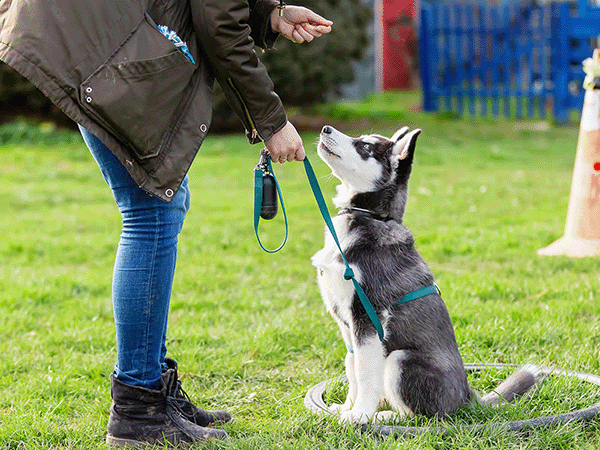
The Best Dog Trainers in the United States of 2025
This is a list of the top dog trainers in the United States, based on votes from the Sniffspot community and the general public.
The Best Dog Trainers in Seattle, WA of 2025
This is a list of the top dog trainers in Seattle, WA, based on votes from the Sniffspot community and the general public.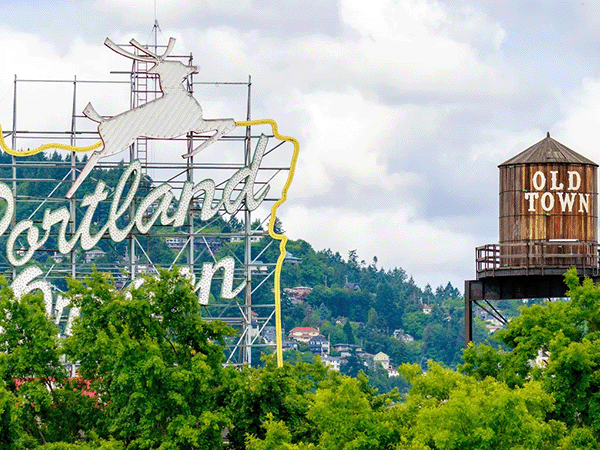
The Best Dog Trainers in Portland, OR of 2025
This is a list of the top dog trainers in Portland, OR, based on votes from the Sniffspot community and the general public.
The Best Dog Trainers in Los Angeles, CA of 2025
This is a list of the top dog trainers in Los Angeles, CA, based on votes from the Sniffspot community and the general public.
The Best Dog Trainers in New York, NY of 2025
This is a list of the top dog trainers in New York, NY, based on votes from the Sniffspot community and the general public.
City dog parks guides

Top 10 Indoor Dog Parks: A US Guide
Looking for a space to play with your dog no matter what the weather’s like outside? Look no further than our list of the best indoor dog parks in the United States! These climate-controlled spaces are growing in popularity as pet ownership increases throughout the country. As a bonus, many of them also offer dog training, boarding, grooming, or daycare services on the premises.

15 Best Dog Parks in the US: Public & Private
Searching for the best off-leash dog parks near you in the United States? Whether you're looking for public dog parks with open spaces or private, fully-fenced areas, this comprehensive guide has you covered. Discover top-rated parks across the country, plus essential tips on what to bring and what to expect for your next adventure.

Dog Parks Near Me: Las Vegas Edition
Looking for the perfect dog park near me in Las Vegas? You're in luck! This guide explores all the best options for your pup, from public dog parks to private dog parks near me on Sniffspot. We'll help you find the ideal spot for playtime, socializing, and fresh air. Plus, we'll cover essential etiquette and safety tips to ensure a happy visit for everyone. Get ready for some tail-wagging fun!

Top Sniffspot Locations: Find the Perfect Dog Park
Looking for the perfect dog park? Whether you need a wide-open public space or a private, fenced-in spot, this guide will help you find the best dog parks across the US. We'll cover top-rated public parks, the perks of private dog parks, and even explore Sniffspot locations – giving your pup a safe and fun place to play. Ready to find your dog's new favorite spot? Let's go!

Sniffspot: Portland's Best Private Dog Parks
Ready to discover Portland's best dog parks? Whether you're looking for a public park or the unique experience of a private Sniffspot, this guide has you covered. We'll help you find the perfect spot for your pup, with tips on what to bring, how to prepare, and even understanding dog body language. Plus, we'll explore some top Portland dog parks, including public and Sniffspot options, so you can plan your next dog-friendly adventure in the City of Roses.
Dogs breeds

German Shepherd Dog: Breed Facts, Experience and Tips from 9K+ Owners
Discover the German Shepherd Dog, a breed celebrated for its intelligence, loyalty, and versatility. Known for its impressive size and smooth, graceful movements, German Shepherds excel in various roles, including as guide, therapy, bomb detection, and police dogs, while being a devoted family companion.

Labrador Retriever: Breed Facts, Experience and Tips from 9K+ Owners
Discover the Labrador Retriever, a breed celebrated for its playful nature, affectionate temperament, and trainability. Labradors are known for their friendly demeanor and adaptability, making them perfect family companions and versatile working dogs. As one of the most popular types of retrievers, Labs are ideal companions for various lifestyles and are recognized by the American Kennel Club (AKC) as an excellent breed for families.

Golden Retriever: Breed Facts, Experience and Tips from 9K+ Owners
Discover the Golden Retriever, a popular breed celebrated for its affectionate, playful, and trainable nature. Considered a large dog, Golden Retrievers were originally bred in Scotland for hunting and retrieving game beginning in the 1860s. Today, they're recognized by the Kennel Club and the American Kennel Club (AKC) as one of the most beloved companion dog breeds.

American Staffordshire Terrier: Your Complete Guide
Think American Staffordshire Terriers are tough? Think again. While their muscular build might intimidate some, these dogs are known for their playful and loyal personalities. This guide draws on the experience of nearly 10,000 AmStaff owners to reveal the truth about this often misunderstood breed. Want to learn more about caring for an American Staffordshire Terrier? You're in the right place.

Australian Shepherd Facts: Breed Info & Care Guide
Discover the Australian Shepherd, an AKC breed celebrated for its trainable, playful, and affectionate nature. Despite its name, the Australian Shepherd is actually a native breed to the United States, originally developed to breed on farms and ranches. Considered a medium dog, Australian Shepherds were bred for herding beginning in the 1950s. As one of the high-energy breeds, Aussies are known for their boundless energy and need for regular exercise, including aerobic exercise.
Top dog names in the US
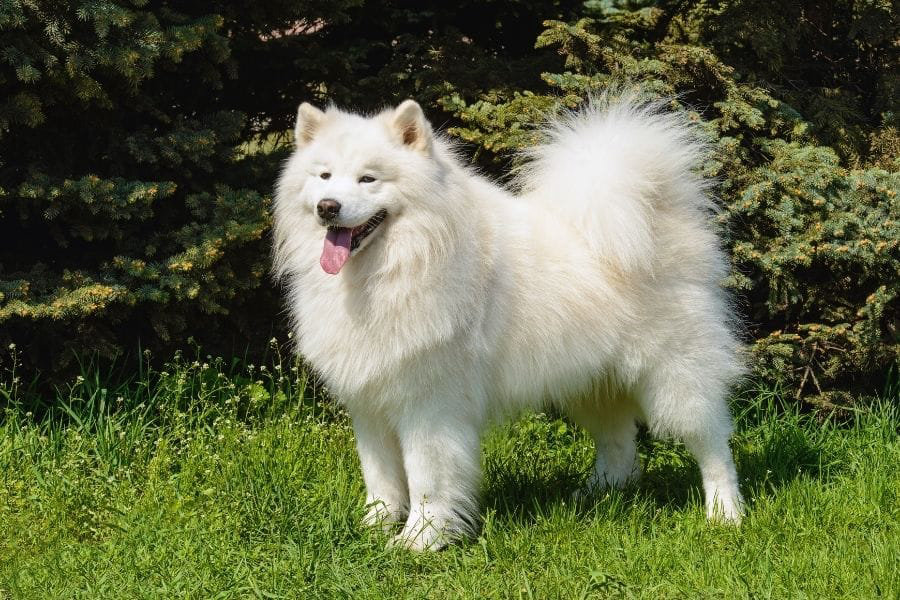
Top 1,000 Most Popular Dog Names
Looking for the perfect dog name for your new pup? We have created filterable lists of dog names from our database of hundreds of thousands of Sniffspot users. You can filter by gender, breed and state to find the most cute, unique and creative dog names.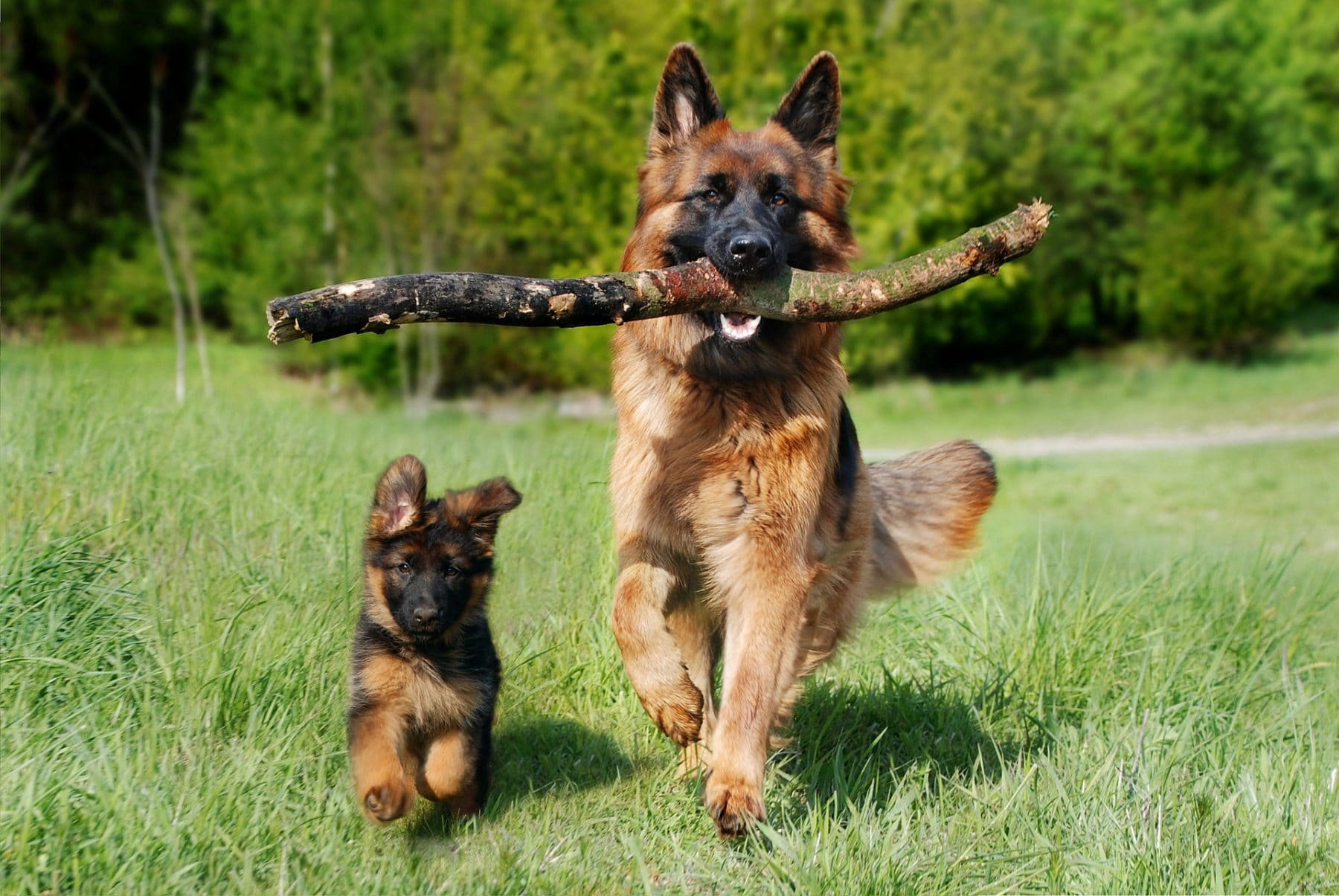
Most Popular Male Dog Names
Looking for the perfect dog name for your new male pup? We have created filterable lists of male dog names from our database of hundreds of thousands of Sniffspot users. You can filter by gender, breed and state to find the most cute, unique and creative male dog names.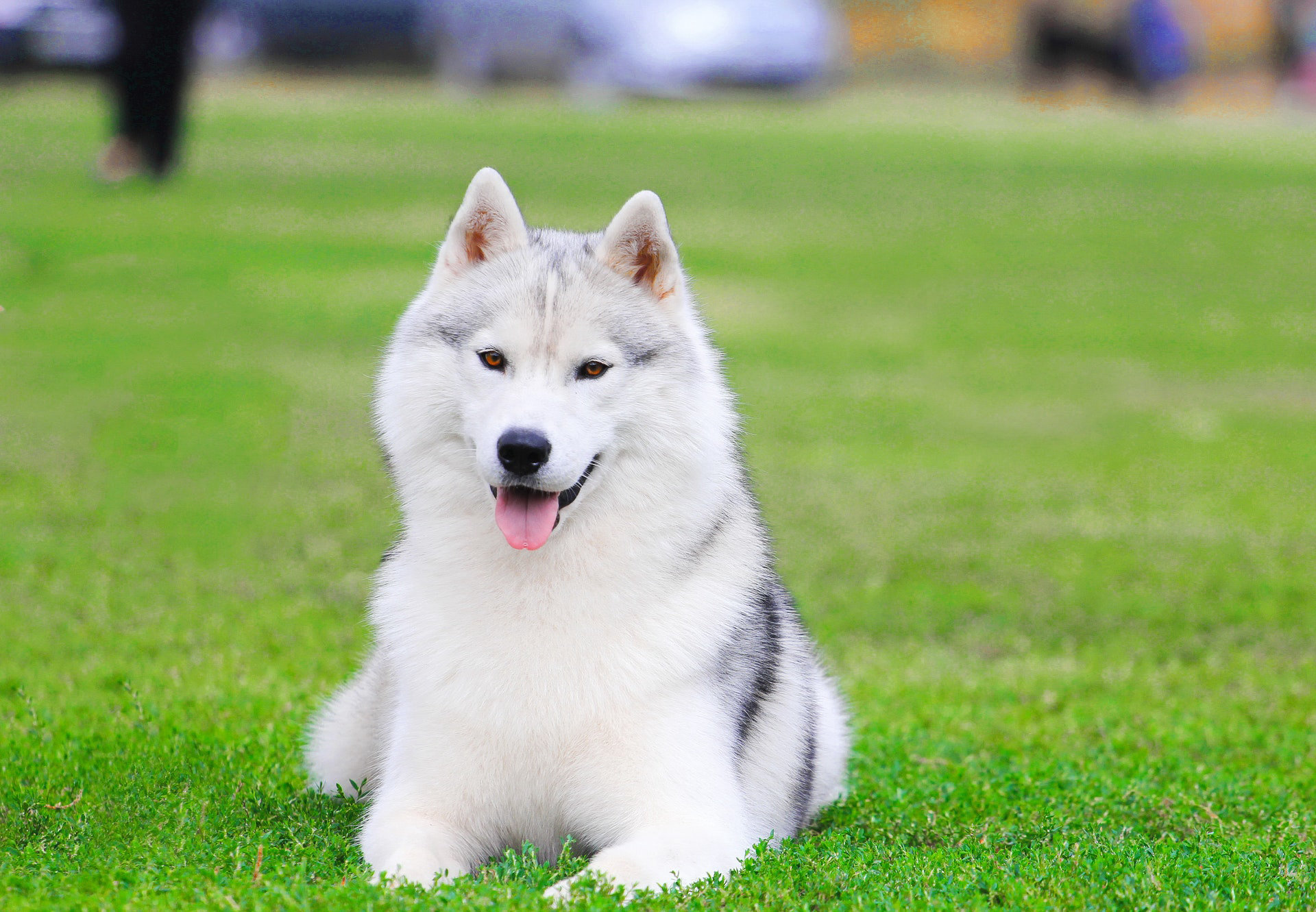
Most Popular Female Dog Names
Looking for the perfect dog name for your new female pup? We have created filterable lists of female dog names from our database of hundreds of thousands of Sniffspot users. You can filter by gender, breed and state to find the most cute, unique and creative female dog names.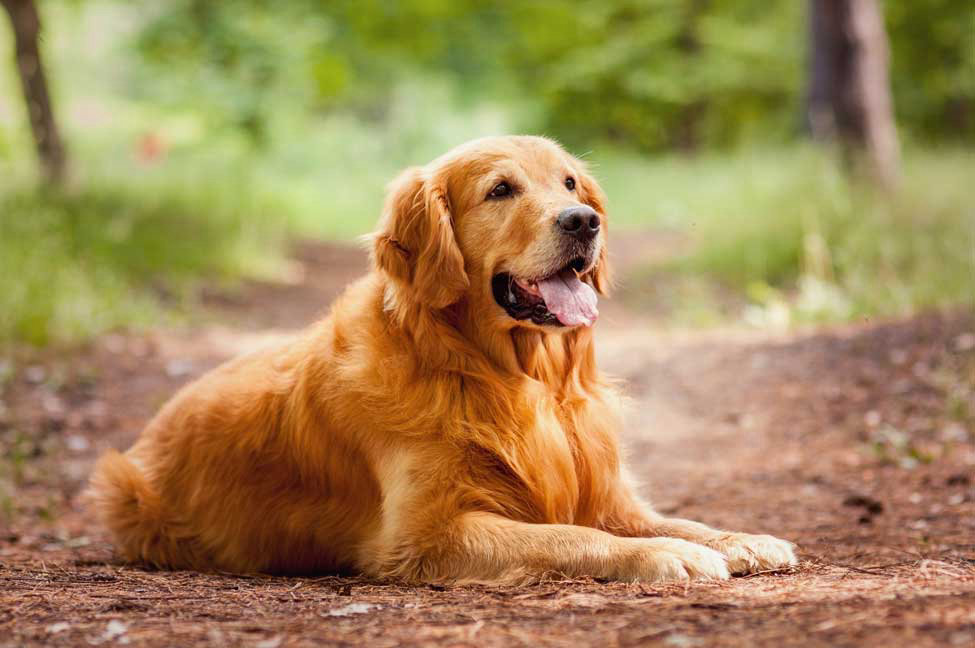
Most Popular Golden Retriever Names
Welcome to our comprehensive list of Golden Retriever dog names, curated from our vast database of Sniffspot users. Filter through hundreds of thousands of options by gender, breed, and state to discover the most adorable, original, and imaginative names for your beloved Golden Retriever.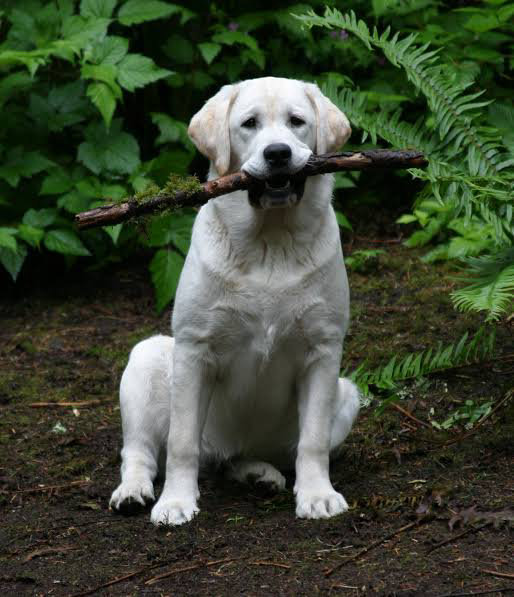
Most Popular Labrador Retriever Names
Welcome to our Labrador Retriever dog names page! Here you can browse through filterable lists of names for your beloved furry friend, ranging from cute and classic to unique and creative options. Our database of hundreds of thousands of Sniffspot users ensures you'll find the perfect name for your Labrador Retriever, whether you're seeking a name for a male or female, based on breed or state.
Top dog rescues in the US

The Best Washington Dog Rescues & Shelters in 2025
This list showcases the top dog rescues & shelters in Washington. These remarkable organizations have been recognized for their unwavering dedication to the well-being of countless dogs.
The Best Oregon Dog Rescues & Shelters in 2025
This list showcases the top dog rescues & shelters in Oregon. These remarkable organizations have been recognized for their unwavering dedication to the well-being of countless dogs.
The Best California Dog Rescues & Shelters in 2025
This list showcases the top dog rescues & shelters in California. These remarkable organizations have been recognized for their unwavering dedication to the well-being of countless dogs.
The Best Florida Dog Rescues & Shelters in 2025
This list showcases the top dog rescues & shelters in Florida. These remarkable organizations have been recognized for their unwavering dedication to the well-being of countless dogs.
The Best New York Dog Rescues & Shelters in 2025
This list showcases the top dog rescues & shelters in New York. These remarkable organizations have been recognized for their unwavering dedication to the well-being of countless dogs.










